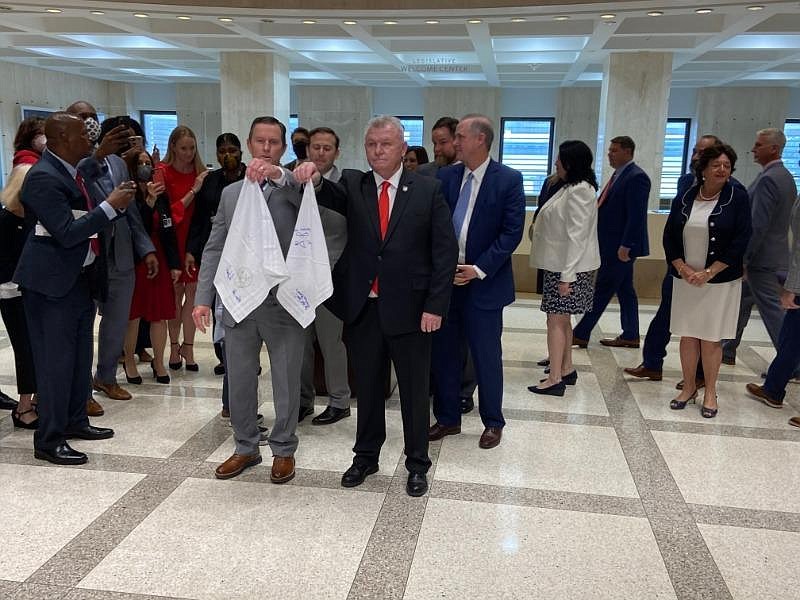- January 17, 2025
-
-
Loading

Loading

also by: Jim Turner
News Service of Florida
Florida lawmakers passed a $101.5 billion state budget Friday and ended a 60-day legislative session that gave Gov. Ron DeSantis many of his top priorities.
The House and Senate adjourned “sine die” -- the traditional end of session -- at 2:40 p.m. after a flurry of activity that included passing the budget and approving a repeal of the state’s no-fault auto insurance system and a revamp of the property-insurance system.
With large majorities in both chambers, Republicans steamrolled Democrats during the session to pass contentious measures on issues such as changing elections laws, cracking down on violent protests and targeting social-media companies -- all DeSantis priorities.
DeSantis, speaking after the session ended, also pointed to budget decisions such as providing bonuses to first responders who have worked through the COVID-19 pandemic.
“I'm proud of being able to accomplish what we set out to do in terms of whether it's big tech, whether it's law and order, whether it's protecting small businesses, whether it's education,” DeSantis said. “The Legislature responded by doing $1,000 bonuses for our police officers and firefighters and first responders (and it) is well deserved, they've worked really hard.”
But while Democrats praised the budget, they criticized DeSantis and Republicans for issues such as the protest bill and the elections bill, which would place restrictions on voting by mail. House Minority Co-leader Bobby DuBose, D-Fort Lauderdale, said Florida was part of a “national narrative” among Republicans on such issues.
“The legacy is, unfortunately, the state of Florida has picked up a national narrative that in my opinion, will hurt many Floridians, especially communities of color,” DuBose said.
The session was shadowed by the pandemic, as the Capitol was almost completely closed to visitors, creating a strange scene of empty hallways and empty committee rooms.
As the pandemic severely damaged the economy last year, lawmakers feared they could face a multibillion-dollar budget shortfall. But in the end, they passed a record budget, buoyed by billions of dollars in federal stimulus money and rebounding state tax revenues.
Only one lawmaker, Rep. Anthony Sabatini, R-Howey-in-the-Hills, voted against the budget Friday. The budget will take effect with the July 1 start of the fiscal year.
“This has been a roller-coaster ride of a budget year,” House Appropriations Chairman Jay Trumbull, R-Panama City, said.
Along with providing bonuses to first responders, examples of spending in the budget include a $50 million increase to raise teacher salaries; about $96 million to provide home- and community-based services to more people with developmental and intellectual disabilities: and $100 million to clean up an old phosphate plant in Manatee County that drew concerns recently about a potential environmental catastrophe.
Also, the budget includes money for such issues as Everglades restoration, addressing effects of sea-level rise and raising the minimum pay of state workers to $13 an hour.
As is often the case, the last day of the legislative session moved sporadically as leaders worked behind the scenes to nail down final bills.
That included reaching an agreement to repeal the state’s longstanding no-fault auto insurance system, a proposal that overwhelmingly passed the House and Senate. Also, it included passing a bill that would make changes to the property-insurance market, which has seen major rate increases and insurers shedding policies.
The budget and the bills will go to DeSantis for his approval or vetoes. Also, lawmakers will return to Tallahassee during the week of May 17 to consider a proposed gambling deal that DeSantis reached with the Seminole Tribe of Florida. That deal, which would include allowing sports betting in Florida, could bring in $2.5 billion for the state over the next five years.
“I look forward to us processing these bills (from the regular session) and looking through the budget. And we'll see y'all back here in a few more weeks. I mean, our budget looks good, so why not put more in the kitty,” DeSantis said.